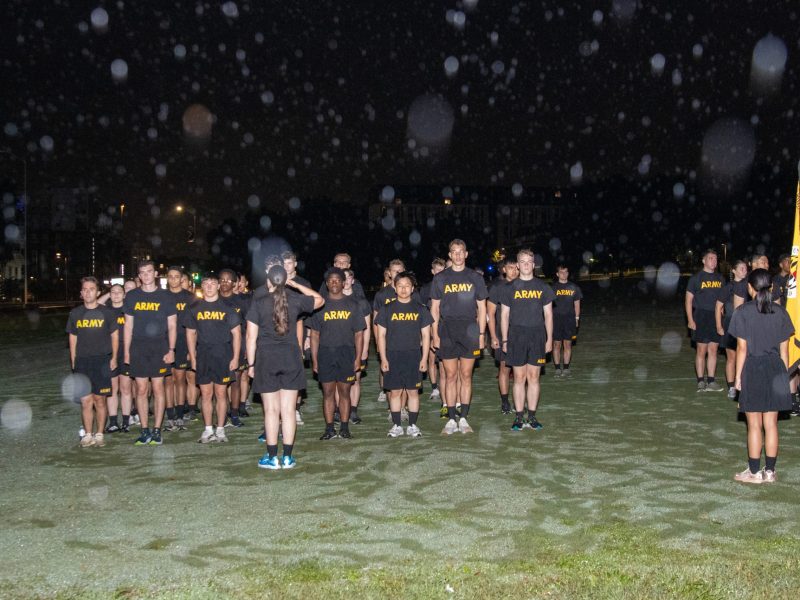Caddi Golia tries to ignore the stares when she walks down the sidewalks of Washington with her boyfriend. Holding hands and smiling at each other, they look like any other couple.
Except for one clear difference: She’s black and he’s white.
Mixed-race couples have been popping up in big-name movies such as Tyler Perry’s I Can Do Bad All by Myself and Rick Famuyiwa’s Our Family Wedding. Still, students like Golia and her boyfriend Jake Reed still think their relationship is viewed as anything but mainstream. For many mixed-race couples at this university, the issue isn’t their relationships being tolerated — it’s their relationships being accepted.
“It can get awkward,” said Golia, a junior public health major. “I don’t think [my boyfriend] notices, but I do and I just generally ignore it.”
Reed, a graduate of the University of Maryland, Baltimore County, approaches the issue of interracial dating with humor.
“I do have a ‘black pass’ now. She made me one,” he said. “I now have permission to listen to rap and play basketball. But our relationship isn’t fundamentally different. I’m diversified.”
Students discussed mixed-race relationships at this university during a panel that was part of last week’s Mixed Madness Week — a five-day campaign by the Multiracial and Biracial Student Association to raise awareness about interracial issues. The panel, made up of students who were in mixed-race relationships, said interracial couples were more likely to be accepted here than in other parts of the United States because of the university’s proximity to Washington and because college campuses tend to be more liberal than most other communities.
Last semester, junior microbiology major Bethany Jackson and Gregory Joseph started their relationship with three simple words: “I like you.”
But no amount of affection can change one fact: She’s white and he’s black.
And although the difference is physically apparent, Jackson said it’s personality and chemistry that defines their relationship.
“Obviously I noticed he was black,” Jackson said. “But my first thought was that I was attracted to his personality. I don’t really see color. … I’m more thrilled that I found a guy who I can connect with and who I’m happy with. But I’m human, and I do notice people looking. But I don’t think we’re different. It feels normal.”
Joseph, a junior cell and molecular biology and genetics major, said although the couple has received skeptical looks from those they don’t know, the issue of race was never raised in his family.
“I primarily date white girls,” Joseph said. “It doesn’t make me second guess myself. It’s always been OK with my parents. My friends know that this is who I am, this is who I choose to be.”
At last week’s panel, students said their families’ responses to their significant others varied by generation.
“It was never a big deal if I brought home a person of a different color,” sophomore letters and sciences major Zach Brown said. “It was more about the grandparents being uncomfortable.”
Jackson agreed, saying the generation that grew up during segregation seems to have the most qualms with racial mixing. Interracial marriage only became legal throughout the United States in 1967, but since then, the rate of mixed-race unions have doubled in the past decade, according to the U.S. Census Bureau.
Recently, some have even made cases for why dating outside of one’s race is preferable.
In her new book, Don’t Bring Home a White Boy, author Karyn Langhorne Folan discusses why black women should date outside their race. She urged them to forget the historical stigmas that spit animosity toward other races and to view interracial dating as a way to side-step the lack of available black men, she told The Washington Post.
College educated black women tend to prefer black men on their level, Folan said, but single black women with college degrees outnumber single black men with the same education level 3 to 1 according to the 2008 U.S. Census American Community survey.
For students, though, educational attainment is a non-issue. For these couples, it’s a matter of happiness, not social politics.
“I’ve never dated outside my own race,” Golia said. “I’m happy, so I don’t care.”
hampton@umdbk.com


